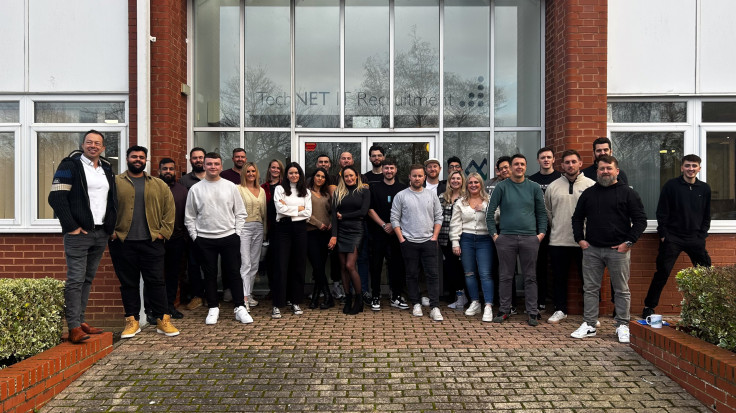This London Start-Up Works 4 Days a Week Thanks to AI
93 per cent of businesses already benefit from AI

In October last year, JPMorgan Chase & Co CEO Jamie Dimon told Bloomberg TV: "Your children are going to live to 100, and they'll probably be working three-and-a-half days a week." Employees will have to wait and see."
Since then, business leaders across the UK have turned their attention to a technology-driven shortened workweek as artificial intelligence (AI) continues to develop.
As part of its 2024 Impact of Technology on the Workplace report, Tech.co interviewed more than 1,000 business leaders on their willingness to implement AI tools to achieve a four-day workweek.
The study found that more than 93 per cent of businesses already benefit from AI and are considering a four-day workweek for their employees.
Out of the businesses that already use AI extensively, more than two-thirds, 72 per cent, said that they have seen productivity levels increase and recognised how this type of technology has positively impacted their business operations.
While working for almost half a week and getting paid a full-time wage seems like a dream scenario to most employees, the dramatic shifts in AI could lead to unemployment and contract terminations.
Human Resources Professor Na Fu told the BBC that she has seen how generative AI tools have replaced a range of job roles across several sectors in recent months, including legal services, content creation, marketing and software development.
The generative AI tools that provide businesses with creation and automation include ChatGPT, OpenAI, and AlphaCode.
In January this year, the International Monetary Fund (IMF) also revealed that the development of AI is threatening almost 40 per cent of all jobs across the globe.
TechNET, a London-based network of technology CEOs and senior executives that promotes the growth of the innovation economy, adopted AI technologies in 2020 and became one of the first London start-ups to offer a flexible four-day workweek.
While speaking to International Business Times UK, TechNET's Group Managing Director Shayne Simpson said the company first embraced the four-day workweek to "provide our team with as much flexibility as possible" during COVID-19.
Simpson called the shorter workweek a "win-win for both our team and the company" as it tackled "the challenges of Fridays in recruitment."
What was the initial employee response to the 4-day work week?
Shayne Simpson: "The team was genuinely thrilled about the change, especially since it was a fairly new idea and not widely embraced by other businesses. However, it sparked some questions because, as we all know, 4-day weeks can look pretty different depending on the company."
Has work productivity improved since the AI characteristics were implemented?
Shayne Simpson: "Our team is more motivated and productive and is achieving goals earlier in the week thanks to streamlined processes and manual tasks now taken care of thanks to automation, and each consultant currently saves 21 hours per week."
"By leveraging automation, we have transformed routine and data-intensive responsibilities, such as email and text communication, allowing consultants to schedule and handle tasks at any time of the day."
Are people happier working fewer hours each week?
Shayne Simpson: "People working four-day weeks are happier because their work-life balance has improved. Instead of only having Saturday and Sunday for family, friends, and chores, they now get Friday for whatever they like – resting, household tasks, or other activities."
"However, while a 4-day week is attractive, some team members choose to work on Fridays but still get to leverage the increased flexibility offered by the 4-day week."
Do employees fear that AI will eventually take over their jobs?
Shayne Simpson: "In our industry, AI has limits, so the answer is no. While we leverage AI to enhance efficiency, human input is crucial for initiating tasks."
"There's a fundamental desire for human interaction, especially in fields like recruitment where personal connections are vital. Removing the human element from the process would likely result in businesses and job seekers bypassing recruiters."
Do you know of other start-ups that are also using AI and implementing a 4-day work week?
Shayne Simpson: "No, a lot of businesses tried the four-day week and dropped it."
Do you foresee AI taking on more tasks and roles in the near future?
"We're collaborating with our AI technology partners to create personalised tech solutions, ensuring that our tech ecosystem seamlessly aligns with our business and caters to the specific needs of our recruiters."
"In our scenario, AI is positioned to take a more prominent role on lower value and repetitive tasks. AI will also give us more data to improve, see trends and make decisions."
© Copyright IBTimes 2025. All rights reserved.






















